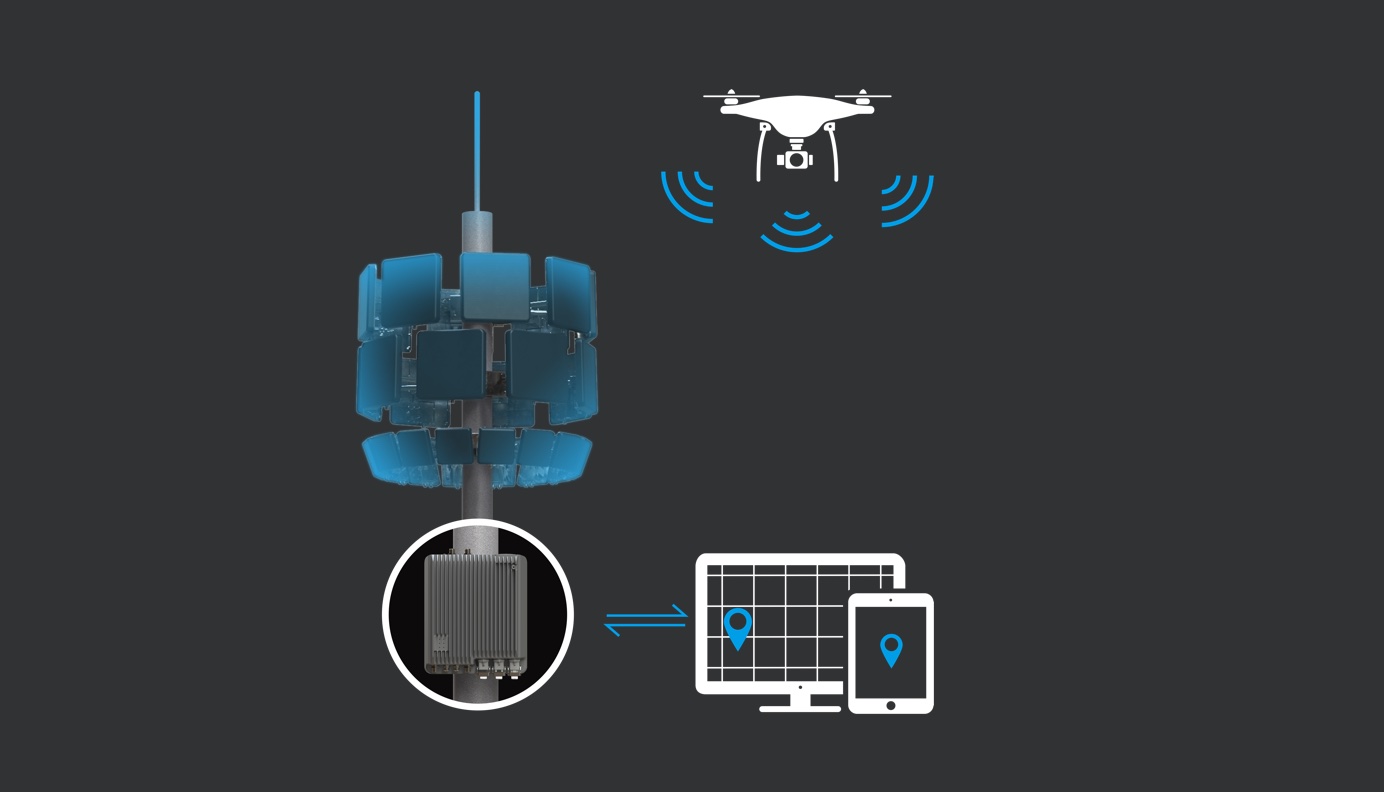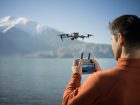
DJI’s status as by far the biggest seller of consumer and enterprise drones on the planet means its UAVs are logically flown most by Ukraine pilots battling Russian invaders. But might that domination change if those operators turn to what they consider safer gear?
The idea arose from a report broadcast last week by CNN, when correspondent Erin Burnett spent time with a Ukraine unit using DJI drones in its work to find, track, and assist strikes on Russian forces. Although very effective in that effort, the pilot of the eight-person team Volodymyr Demchenko said, deployment of the company’s UAVs leaves operators open to counterstrike by Russian troops using DJI’s AeroScope drone detection platform to pinpoint location.
“We are using Chinese drones, and the Chinese give Russians a program that can search us, spot us out,” Demchenko says in the CNN report. “Russians see from where we are starting and where we are landing. And once, it happened to us, that we were attacked, like, right away. The drone was landing and the next, like, in 30 seconds, a (rocket strike) was like really close, like 30 meters away.”
Related: Drone performance in Ukraine may force military strategy rethink
The CNN report led some DroneDJ readers to voice their concerns about its implications. Those appeared based on past media coverage of AeroScope use in the conflict, some of which intimated a quasi-collaboration between DJI and Russian forces to undermine what has been remarkably deft use of Ukraine drones in the war.
Those allegations ranged from the company funneling the tech to the Russian army to strengthen its ability to detect and destroy Ukraine forces flying DJI drones, to it knocking AeroScope assets operated by Ukraine out of commission.
Both allegations were flatly refuted at the time, with DJI having since halted sales of its products in both countries. The company has also repeatedly said its craft were never developed for, nor should be used in military missions, and indicated it had no position in the current Ukraine-Russia conflict.
Read more: DJI denies deliberate action to downgrade AeroScope drone detection in Ukraine
So why all the headlines about AeroScope?
In fairness, it’s not illogical that Russia, or Ukraine for that matter, would be using AeroScope and other detection tech to counter each other. The widespread deployment, and stunning success of consumer craft by both sides makes using any and all available counter-drone tech a no-brainer. And, with Demchenko offering an example of DJI’s preferred status by pilots in Ukraine, the value of AeroScope’s design to detect and provide craft, flight, and pilot position details becomes obvious.
In other words, even without the company supporting or maintaining relationships with Russian or Ukraine forces, the abundance of its products in the hands of combatants means use of both DJI drones and AeroScope against one another is baked into the equation.
Related: Video tweet credits Phantom 3 in Ukraine grenade drop through Russian sunroof
In light of those facts, Demchenko and other Ukraine operators of DJI drones are now taking evasive, no-tech measures of their own to stay out of harm’s way. Craft taken to remote positions to be powered on and recovered after landing to avoid potential rocket strikes, and pilots initially fly at low altitudes until nearing destinations to confound detection. Still, he said he knew three pilots from other units who were killed by rocket strikes after their UAVs were tracked, so those methods have their limits.
For that reason, Demchenko told CNN, he and other operators are hoping to obtain US-made drones that will remain invisible to AeroScope detection, thereby enhancing both their work and safety.
That, however, is shaped by current supply flow of consumer UAVs into Ukraine, not the demand of units operating them. But should that influx of craft from abroad heed the appeals for drones that Russian AeroScope platforms won’t see, it could change the product brands sent in – and feasibly make Ukraine one of the rare nations where DJI’s market domination is seriously challenged.
FTC: We use income earning auto affiliate links. More.




Comments